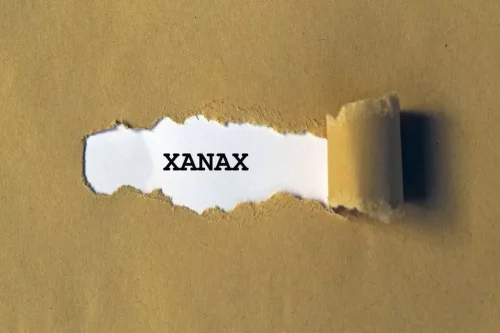
To the best of our knowledge, all content is accurate as of the date posted, though offers contained herein may no longer be available. The opinions expressed are the author’s alone and have not been provided, approved or otherwise endorsed by our advertisers. It’s likely that regulations surrounding CBD legality will continue to evolve and fluctuate over time.
The other way that THC can sneak into your CBD bottle
“We even analyzed products that specifically said, ‘THC-free,’ and several of them in fact were not,” says Babalonis. Among other concerns, THC contamination can cause an individual to fail a drug test. Even more disturbing is the presence of substances not listed on the label. Those can include dangerous heavy metals and significant doses of THC (tetrahydrocannabinol) — the compound in marijuana that induces a high. In clinical trials for Epidiolex, many research participants reported relatively mild side effects, such as fatigue and digestive issues.
- Given the diverse scope of these products, CBD may be described by product marketers as a dietary supplement, a food additive, a cosmetic ingredient, or a drug, each of which would be regulated differently by the FDA.
- The Drug Enforcement Administration (DEA) is the federal agency responsible for enforcing the controlled substance laws and regulations in the U.S. and, as such, should be consulted with respect to any regulations/requirements they may have regarding the import or export of products containing cannabis.
- In the 1930s, this propaganda persisted and heavily contributed to cannabis becoming illegal.
- Some products might even contain THC, which can interfere with medications and cause unwitting users to get high.
- Medical marijuana is on the rise, yet strict research rules mean doctors know little about its safety and effectiveness.
Your Guide To CBD Legalization By State
In 2018, the Farm Bill made hemp legal in the United States, making it virtually impossible to keep CBD illegal — that would be like making oranges legal, but keeping orange juice illegal. The question posed by the title of this post has been vexing commentators for the past few months, with different sources giving wildly different answers. In this post, I hope to shed some light on the legal status of cannabidiol (CBD) under federal law. If you have concerns that your pet is is cannabidiol addictive suffering adverse effects from ingesting cannabis or any substance containing cannabis, consult your veterinarian, local animal emergency hospital or an animal poison control center immediately. As discussed above (see Question #2), the 2018 Farm Bill removed hemp from the CSA. This change may streamline the process for researchers to study cannabis and its derivatives, including CBD, that fall under the definition of hemp, which could speed the development of new drugs.
Removal of cannabis from Schedule I of the Controlled Substances Act
- Often such products are sold online and are therefore available throughout the country.
- So you cannot be sure that the product you buy has active ingredients at the dose listed on the label.
- Consequently, statements implying that CBD produces effects through its action on homeostatic processes mediated by the endocannabinoid system are misleading.
- In other words, even the DEA now seems to accept that the CSA does not bar someone from possessing, manufacturing, or distributing CBD extracted from the mature stalks (or other excluded parts) of the cannabis plant.
- Information from adverse event reports regarding cannabis use is extremely limited; the FDA primarily receives adverse event reports for approved products.
- Virgin Islands, have legalized the use of medical cannabis with high levels of THC.
To this end, we summarize results of the scientific research that has examined pharmacological effects of CBD, emphasizing studies performed with human subjects. With the exception of a few published results of clinical investigation, the extant scientific literature does little to illuminate the issue of CBD efficacy for the many conditions it is purported to treat. Notably, including a control group that does not receive an active drug is necessary to evaluate any drug’s effectiveness (Dobrilla & Scarpignato, 1994; Munnangi & Angus, 2019). This control is especially critical for eliminating the potential influence of placebo effects in causing any beneficial therapeutic effects observed in CBD trials; placebo effects tend to be marked with cannabis-derived medications (Gertsch, 2018).
Throughout his petition, Mr. Gettman argues that while many people “use” cannabis, few “abuse” it. He appears to equate abuse with the level of physical dependence and toxicity resulting from cannabis use. Thus, he appears to be arguing that a substance that causes only low levels of physical dependence and toxicity must be considered to have a low potential for abuse. Physical dependence and toxicity are not the only factors that are considered in determining a substance’s abuse potential.
FDA News Releases and Statements
Ingredients not specifically addressed by regulation must nonetheless comply with all applicable requirements, and no ingredient – including a cannabis or cannabis-derived ingredient – can be used in a cosmetic if it causes the product to be adulterated or misbranded in any way. A cosmetic generally is adulterated if it bears or contains any poisonous or deleterious substance which may render it injurious to users under the conditions of use prescribed in the labeling, or under such conditions of use as are customary or usual (section 601(a) of the FD&C Act [21 U.S.C. § 361(a)]). A. Cannabis is a plant of the Cannabaceae family and contains more than eighty biologically active chemical compounds. The most commonly known compounds are delta-9-tetrahydrocannabinol (THC) and cannabidiol (CBD).

A cheat guide to CBD
- A. The FDA has sent warning letters in the past to companies illegally selling CBD products that claimed to prevent, diagnose, treat, or cure serious diseases, such as cancer.
- We encourage consumers to think carefully before exposing themselves, their family, or their pets, to any product, especially products like CBD, which may have potential risks, be of unknown quality, and have unproven benefits.
- Based on available evidence, FDA has concluded that THC and CBD products are excluded from the dietary supplement definition under section 201(ff)(3)(B) of the FD&C Act [21 U.S.C. § 321(ff)(3)(B)].
- This includes cannabidiol (CBD) and tetrahydrocannabinol (THC), two natural compounds found in plants of the Cannabis genus.
- FDA has, however, approved one cannabis-derived and three cannabis-related drug products.
She specializes in writing about mental health, healthy aging and overall wellness. For six years, she was an editor and senior writer at Well+Good, covering everything from food trends to public health issues like the opioid epidemic. Newhouse School of Public Communications at Syracuse University with a bachelor’s degree in magazine journalism. Forbes Health covers CBD and cannabis products in accordance with FTC guidelines. Learn more about Forbes Health’s practices and policies regarding how we cover CBD and cannabis as a publisher. Your ability to purchase and consume CBD legally largely depends on where you live.
The FDA recognizes the significant public interest in cannabis and cannabis-derived compounds, particularly CBD. However, there are many unanswered questions about the science, safety, and quality of products containing CBD. The agency is working on answering these questions through ongoing efforts including feedback from a recent FDA hearing and information and data gathering through a public docket. As the video above explains, the problem with the label “CBD-only” is that these products contain other compounds—or cannabinoids—including THC. In many states with either legal marijuana systems or ones that allow for the possession of CBD products, there are thresholds for determining a CBD product. In many states, it is a “CBD-only” product if it has less than 0.3 percent or 0.5 percent THC.
- FDA treats products containing cannabis or cannabis-derived compounds as it does any other FDA-regulated products — meaning they’re subject to the same authorities and requirements as FDA-regulated products containing any other substance.
- Cannabis also has a long history of being used for its intoxicating properties (Pollan, 2001).
- This will be a highly regulated crop in the United States for both personal and industrial production.
- Blessing says that CBD shows a lot of promise, and that she is frustrated that the federal government makes it so difficult for scientists to obtain different strains of CBD.
- Schedule I has the highest level of control, designated a substance as having no safe medical use and has a high risk of abuse or misuse.
You should let your doctor know if you are regularly using CBD so that he or she can check your liver enzymes periodically. Even though the “marihuana extract” Rule is in tension with its holding in Hemp Industries Association, the Ninth Circuit rebuffed a suit brought by the HIA challenging this Rule. It is important to note, however, that the court rejected the HIA’s challenge on largely procedural grounds. In a non-published decision, Hemp Industries Association v. Drug Enforcement Administration, 720 Fed. 886 (2018) (HIA II), the court found that HIA had forfeited (most of) its arguments because it failed to raise them in a timely manner—namely, during the agency’s notice and comment period (the agency had proposed the rule all the way back in 2011).


The FDA has not approved any over-the-counter (OTC) drugs containing CBD, and none of these products meet the requirements to be legally marketed without an approved new drug application. The letters explain that, as CBD has known pharmacological effects on humans, with demonstrated risks, it cannot be legally marketed as an inactive ingredient in OTC drug products that are not reviewed and approved by the FDA. Additionally, the letters cite substandard manufacturing practices, including failure to comply with current good manufacturing practices.

